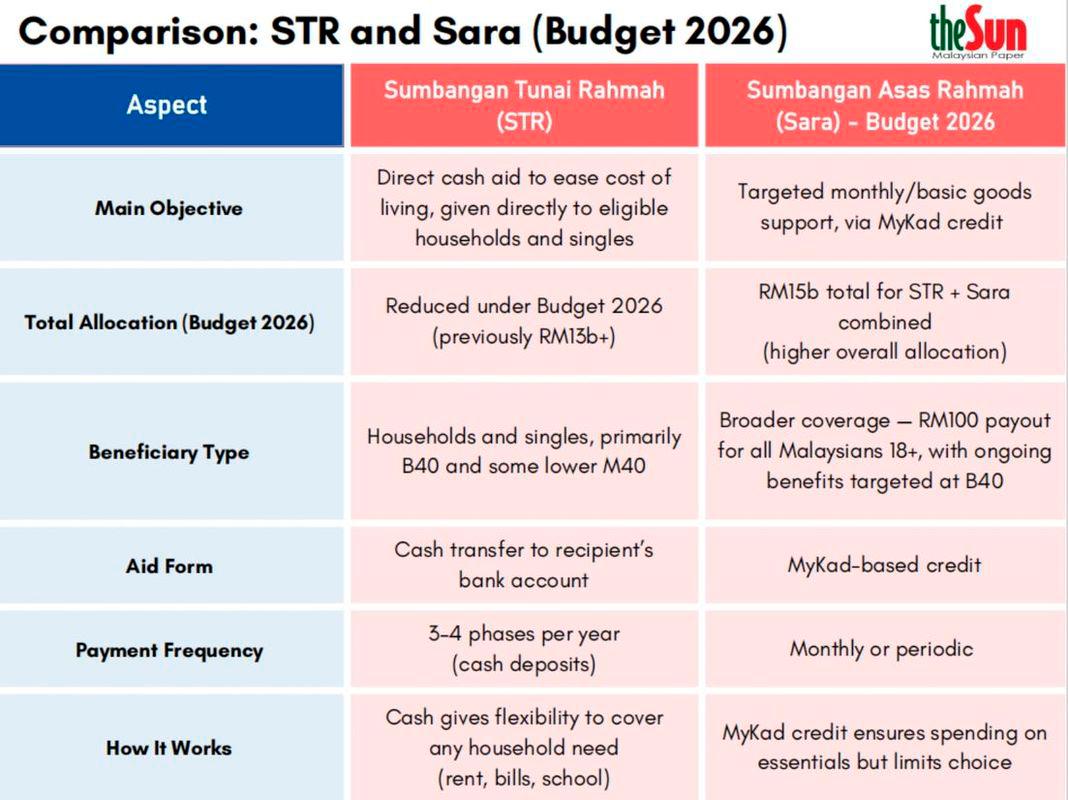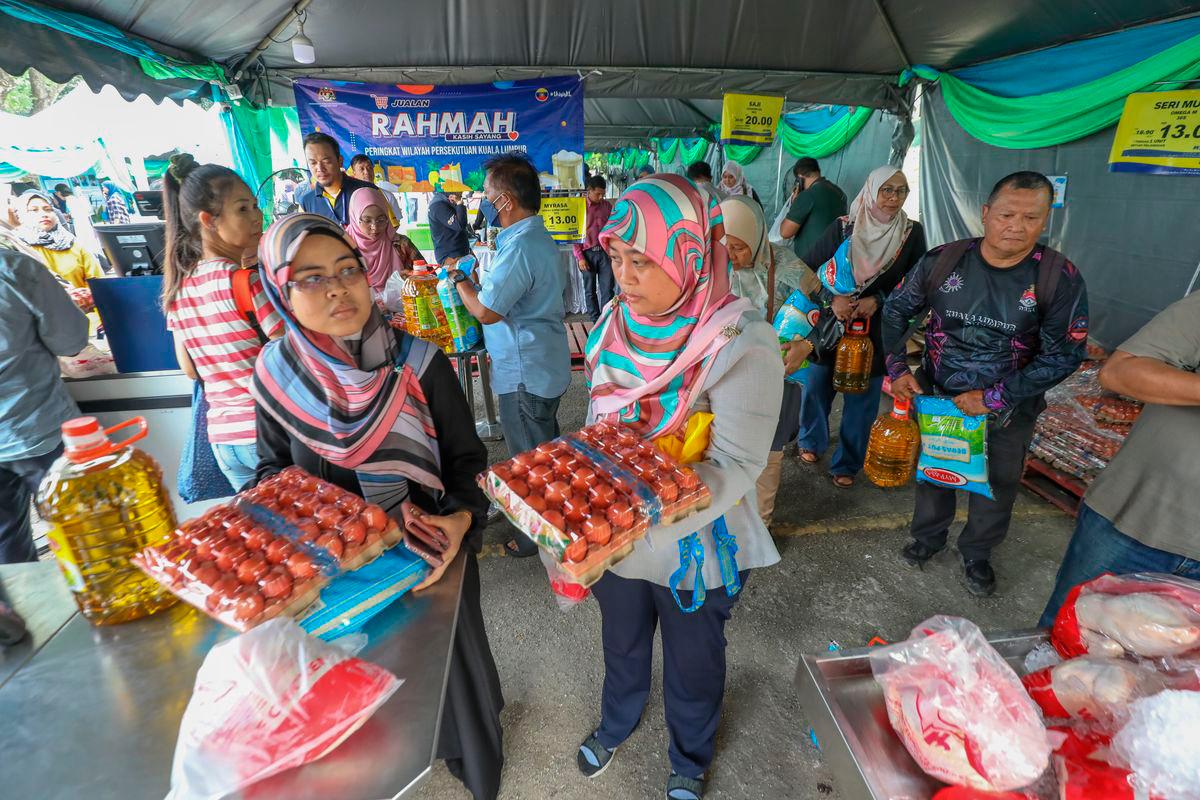PETALING JAYA: The government’s move under Budget 2026 to expand the Sumbangan Asas Rahmah (Sara) programme while reducing direct cash aid under Sumbangan Tunai Rahmah (STR) has stirred unease among Malaysians – a reaction that an economist says is entirely expected.
While Sara is designed to ensure government aid goes directly towards essential goods, the shift has drawn mixed responses from lower-income households who feel their spending flexibility has been curtailed.
Universiti Teknologi Mara senior lecturer in economics Dr Mohamad Idham Md Razak said such reactions are common when broad-based cash schemes are replaced with more restrictive or targeted assistance.
“Even well-intentioned shifts towards more targeted aid can generate public dissatisfaction. This often stems from loss aversion – people feel the removal of a universal benefit like STR more deeply than they appreciate a new, restricted alternative.”
He noted that broader cash aid programmes like STR foster a sense of shared social solidarity, whereas narrowly targeted schemes can inadvertently create perceptions of unfairness or exclusion, even when total spending is higher.
“Clear communication and transparent criteria are essential to maintaining public trust during such transitions.”
Mohamad Idham said cash transfers like STR and controlled-use schemes like Sara each have distinct economic effects.
“Unconditional cash gives households full autonomy to allocate resources according to their most pressing needs. This strengthens purchasing power and stimulates local economic activity.”
By contrast, Sara channels spending towards specific goods and outlets, supporting essential sectors such as food retail but limiting flexibility in other areas, he said.
“While both approaches boost consumption, cash transfers generally offer greater flexibility, dignity and macroeconomic efficiency.”
Asked whether the shift from STR to Sara was driven more by fiscal concerns, Mohamad Idham said it likely reflects a blend of financial discipline and policy intent.
“With growing budgetary pressures, the government may view restricted, means-tested programmes as a way to contain costs while ensuring support reaches those most in need.” However, efficiency in social spending should also mean reducing administrative burdens and avoiding “exclusion errors” where deserving recipients are left out, he added.
“True efficiency means designing systems that uphold fiscal sustainability without compromising inclusion. Dynamic data systems and simplified access are key to achieving that balance.”
Mohamad Idham cautioned that highly targeted systems risk overlooking informal workers, gig earners and rural families who may not appear in official databases.
“Many gig workers, small-scale vendors and rural households operate outside formal employment structures, making them invisible to static poverty assessments.”
He suggested that Malaysia improve inclusivity by integrating real-time data from diverse sources such as utility records, mobile transactions or community verification to uncover hidden vulnerabilities.
Looking ahead, he said Malaysia should consider a blended approach that combines the strengths of both universal and targeted systems.
He said a layered model would promote inclusion, reduce stigma and ensure no one is left behind due to data gaps or bureaucratic delays.










